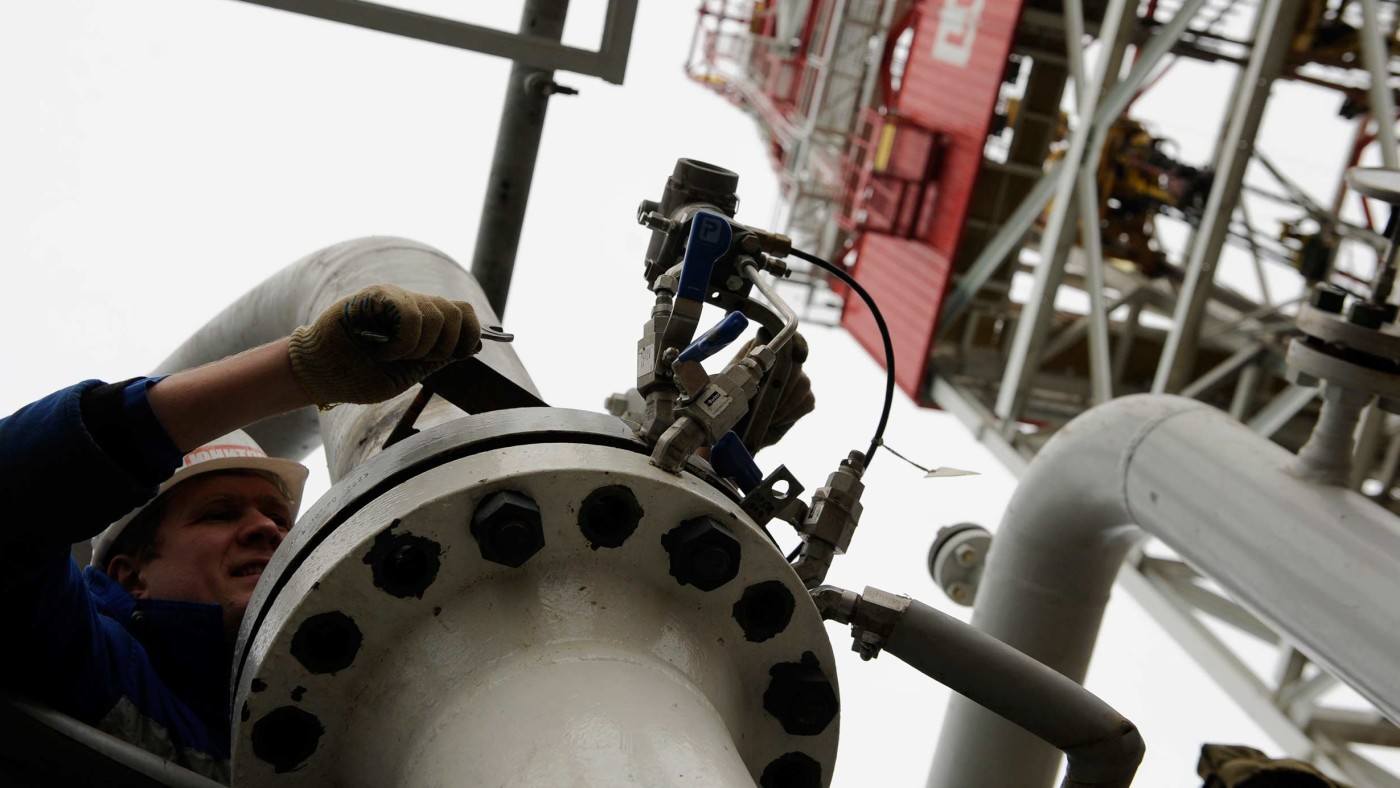The Russian economy today bears little resemblance to that of the late Soviet Union.
Mikhail Gorbachev’s dreams of perestroika, of transforming the creaking command economy by adopting the advances of automation and the information revolution, did not come to pass.
After a lost decade of graft and economic mismanagement under Boris Yeltsin, Vladimir Putin’s rise offered the country options; whether to emulate Western models of growth or focusing on developing Russia’s vast energy resources, revenues from which had kept the Soviet Union afloat in its final days.
With oligarchs firmly established in a number of industries, holding the keys to political power and not being particularly in the mood for competition, it was far easier for Putin to choose the latter, to go with the flow and draw state revenues from the energy sector alone rather than trying to build a broader tax base. Energy sector taxes now provide around half of Russian state incomes.
While many Russian industrial and service exports remain competitive in the countries of the former Soviet Union, their revenues are small fry compared to those of energy giants of Gazprom and Rosneft. Only Russia’s relatively cheap but high quality military exports remain similarly competitive across the globe.
This energy focussed economic model was perfectly fine while oil prices were around the hundred dollars a barrel mark.
The resource windfall gave Russia a healthy budget and allowed it to throw its weight around to show it was still a major global player.
However, time may be up for this approach.
Oil prices have declined 70 per cent from June 2014, while natural gas import prices have dropped over 40 per cent from this time last year.
Combined with recent sanctions, this has left a hefty dent in Russian state coffers.
To plug the holes in its revenue stream, Russia has been forced to up taxes on the energy giants, hitting oligarchs in the pocket, and threatening to damage future oil revenues to boot by reducing the capital available to spend on oil and gas exploration.
This crash in oil revenues is not a mere cyclical event that can be waited out. The shale revolution has cut the long term cost of producing oil.
Fracking, breaking up oil and gas bearing rock formations using high pressure steam, has significantly expanded the quantity of viable oil and gas reserves globally.
This has not been a sole reason for the oil price crash global liquidity, an end to Iranian oil sanctions increasing supply and squabbling inside OPEC preventing output cuts to up the price have both increased the amount of oil on the market, to Russia’s cost. America has also ended its decades old oil export bans which have allowed new shale energy liquidity onto the market.
What the shale revolution does do is to provide a very strong downward pressure on price rises.
As the price of oil rises, not only are all current shale projects made viable, but so are many more made so. Even Europe’s currently lacklustre shale energy sector could be invigorated as prices go up in future.
This will be a strong downward pressure on future oil prices, as output goes up from non OPEC countries. Indeed, Russia is planning on an oil price of $40 a barrel for the near future.
Russia also faces a reliability issue. For all the beheadings and Wahhabism, Saudi Arabia remains on good working terms with Western oil buyers. In short, in a time of greater liquidity, Western customers are likely to go to oil sellers which offer smaller geopolitical risks, especially after the events of the Ukraine crisis.
Even if Russia looks east, China is unlikely to be offering Russia a sweetheart deal for its energy resources. This was shown clearly in its shrewd dealing over the Power of Siberia pipeline deals in 2014-2015, exploiting Russia’s isolation to get a very good deal.
It would be wrong to suggest Russia faces economic collapse as a result of the oil bust.
But what the government does face is difficult trimming around the edges of its budgets.
That will mean Putin will have to play a very delicate balancing game.
He will have to sate the hawkish military and intelligence elites of the Siloviki by not cutting military expenditures too far, avoid alienating oligarchs with high taxes, and also avoid the wrath of Russian pensioners used to their relatively high state benefits by not cutting back social security too far.
In the long term, this means broadening the Russian economic base. Putin needs to rekindle some of the dreams of perestroika if he is to avoid long term budget pressures by building a less fragile tax base.
In the shorter term, whether this is a balancing act even Mr Putin can achieve, is unclear.


